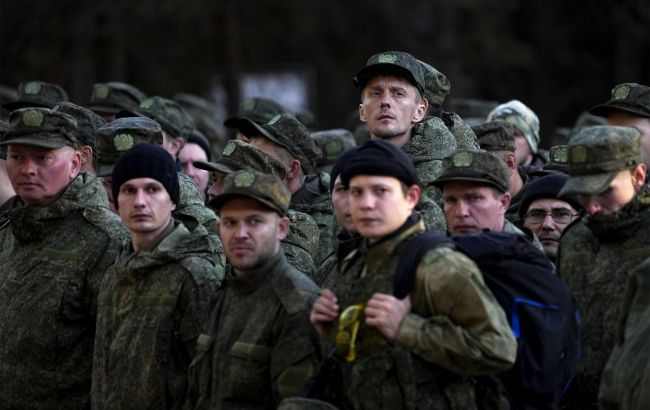Russia launches large-scale recruitment of reservists: Details revealed
 Illustrative photo: Russia has launched a large-scale recruitment of reservists (Getty Images)
Illustrative photo: Russia has launched a large-scale recruitment of reservists (Getty Images)
Russia has begun a mass recruitment of reservists to allegedly guard critically important infrastructure facilities. The formation of such units has started in at least 20 Russian regions, according to Russian media.
According to the media, after legislative amendments entered into force on November 4, a large-scale campaign to recruit reservists began across Russian regions. Officially, the additional forces are being formed to strengthen protection against Ukrainian long-range drones, to create mobile fire groups, and conduct counter-sabotage activities.
During this service, reservists receive the status of military personnel with corresponding payments, social guarantees, and benefits. The length of service under the contract ranges from six months to one year. It is also stipulated that reservists will serve only in their home region.
In some regions, the formation of such units began even before the law came into force. For example, in Tatarstan, at the end of October, the first unit of 21 reservists was already deployed to guard oil facilities, while in the Nizhny Novgorod region, 15 people passed selection at the local enlistment office and signed contracts.
In Bashkortostan, specialized mobile fire groups are being created to counter drone attacks on fuel and energy facilities — including the Bashneft refinery, Ufaneftekhim, and Gazprom sites.
Reports on the formation of similar units have also come from Saint Petersburg, as well as the Leningrad, Kaliningrad, Tver, Pskov, Rostov, Yaroslavl, Bryansk, Kursk, Tula, Smolensk, Samara, Tyumen, and Nizhny Novgorod regions, along with the Perm, Krasnodar, and Krasnoyarsk territories.
In the border regions — Belgorod, Bryansk, and Kursk — authorities plan to expand existing BARS units with new formations.
The primary tasks assigned to the reservists include guarding critical infrastructure, countering drones, stopping sabotage groups, organizing evacuations, and ensuring the regime of a counterterrorism operation.
Background
On November 4, Russian President Vladimir Putin signed a law allowing reservists to be deployed to guard critically important infrastructure facilities.
According to the ISW, the Kremlin adopted laws that effectively open the possibility of deploying Russian reservists in the occupied territory of Ukraine.
Recently, Ukraine has intensified strikes on Russian oil refineries and critical defense enterprises.
Ukrainian forces aim these strikes at undermining Russia’s military-industrial base and limiting its ability to continue its aggression against Ukraine. At the same time, Ukraine is actively increasing the production of long-range drones and missiles.

